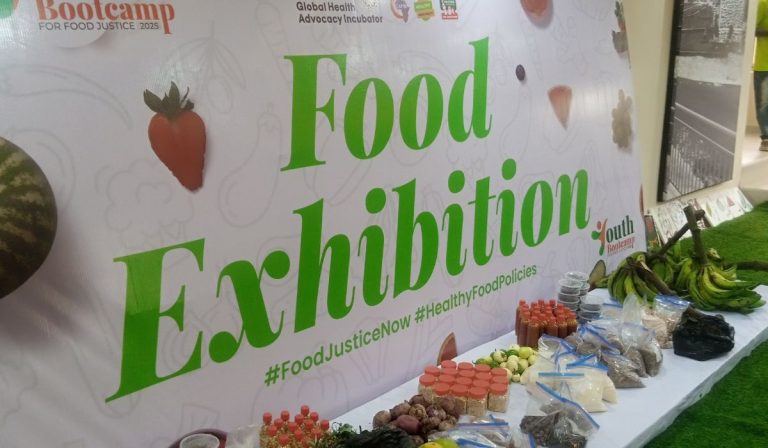The Ekiti State Government has praised Corporate Accountability and Public Participation Africa (CAPPA) for its efforts in promoting healthy diets to reduce Non-Communicable Diseases (NCDs) in Nigeria.
CAPPA is a group that campaigns for a healthy food environment and works to reduce the spread of deadly illnesses caused by poor diets.
The group explained that eating ultra-processed foods and drinks that are high in fat, salt, and sugar — such as soft drinks, instant noodles, salty snacks, and fast foods — is a major cause of diseases like diabetes, hypertension, heart problems, stroke, and cancer.
The Director General of the Ekiti State Office of Development Partnership, Abiodun Oyeleye, said the campaign for food justice is the right step to encourage more people to eat natural and organic foods.
Oyeleye noted that Ekiti is known for organic foods and that the state has introduced agricultural policies and programmes to produce quality and healthy food for its people.
He made these remarks during the five-day Youth Bootcamp for Food Justice 2025, held at the Ikogosi Warm Springs Resort, Ekiti. The event was organised by CAPPA in partnership with Global Health Advocacy Incubator (GHAI). He said the bootcamp was a good opportunity to guide young people to make better food choices.
According to him, the programme supports the vision of Governor Biodun Oyebanji, who wants to empower youths and strengthen the agricultural sector in Ekiti.
He added that food is like energy for both young people and adults, helping them to live and work effectively. That is why programmes like this, which teach the importance of healthy eating, are very important.
Speaking proudly of Ekiti, Oyeleye said the state is blessed with many local delicacies, including the popular pounded yam. He explained that agriculture is Ekiti’s strength, and the state is committed to being a leader in organic food production.
He mentioned initiatives such as the Agbeyewa Farm Project, which encourages young people to go into farming so that the state can continue producing quality food for consumption.
Zikora Ibe, the Assistant Executive Director of CAPPA, also spoke at the event. She said public health challenges cannot be solved individually but require collective efforts involving young people, policymakers, and communities.
She appealed to the federal government to make laws that will regulate the promotion of unhealthy foods and drinks and also introduce clear labels on products so that Nigerians can easily understand their contents.
According to Ibe, front-of-pack labelling is necessary so that people can quickly see if a product is high in salt, sugar, or fat. This will help them make healthier choices without needing professional knowledge in nutrition.
She stressed that CAPPA is already working with government agencies such as the Federal Ministry of Health and NAFDAC to push for such reforms.
Ibe said youths were chosen as the main participants in the bootcamp because they are very active, targeted by food companies, and are in the best position to spread the message to their communities.
Abayomi Sarumi, CAPPA’s Associate Director for Food Justice, said the training aims to build a network of young Nigerians who can influence policies and demand better food regulations.
He explained that diseases once linked to older or wealthy people are now common among young Nigerians, making food reforms even more urgent.
Sarumi listed key policy demands, such as a 20% tax on sugary drinks, limits on salt in processed foods, clear warning labels on food packs, and restrictions on marketing unhealthy foods.
The bootcamp hosted 60 youths from across Nigeria’s six geopolitical zones. They were trained to become advocates, raise awareness, and promote healthy diets in their communities.
The event also showcased healthy foods from different regions of Nigeria, with participants learning how to prepare these meals using natural ingredients and spices.
One of the participants, ThankGod Ochai, said the five-day training was an amazing experience. He promised to spread the message on social media and form a community of food justice advocates.
Another participant, Hope Ogunka, a health journalist, described the experience as inspiring. She said she would use her podcast and social media platforms to educate people about food justice and healthy living, encouraging everyone to make better choices for their health.


